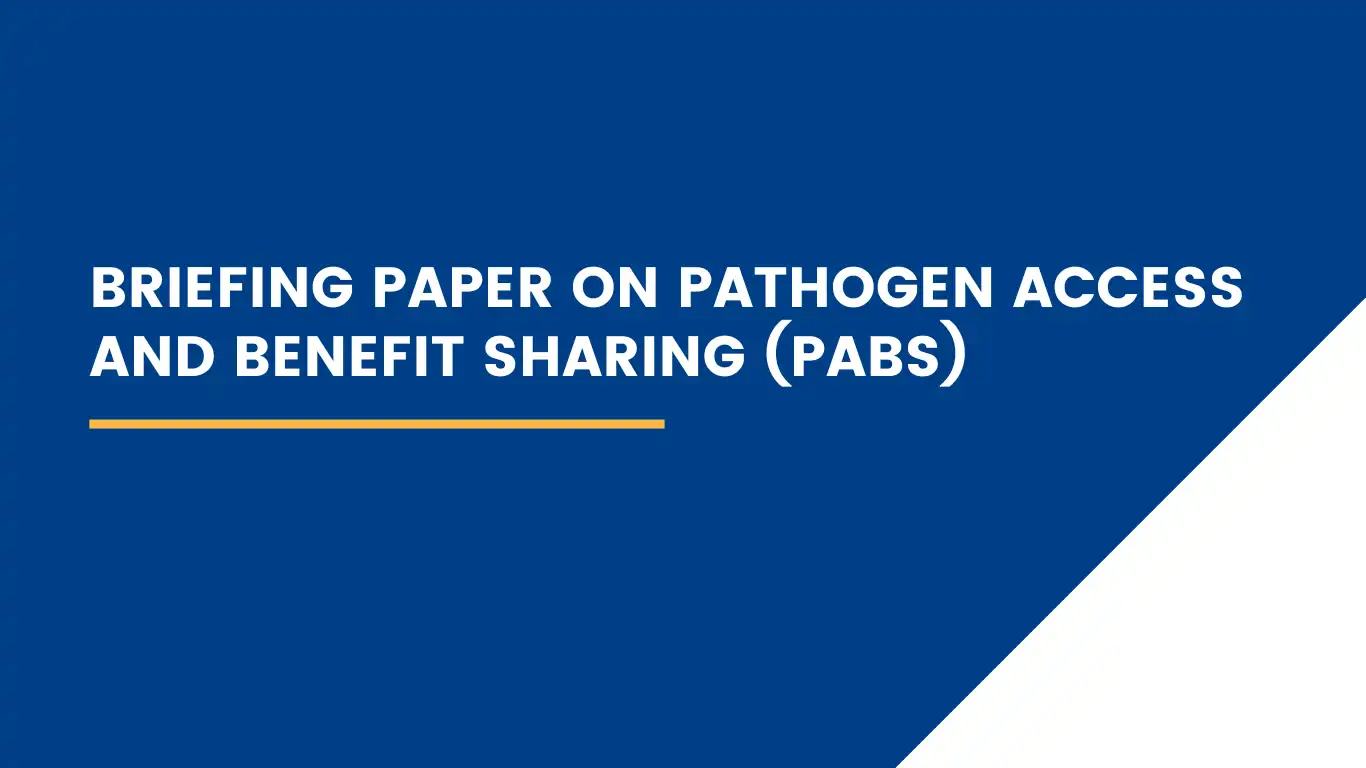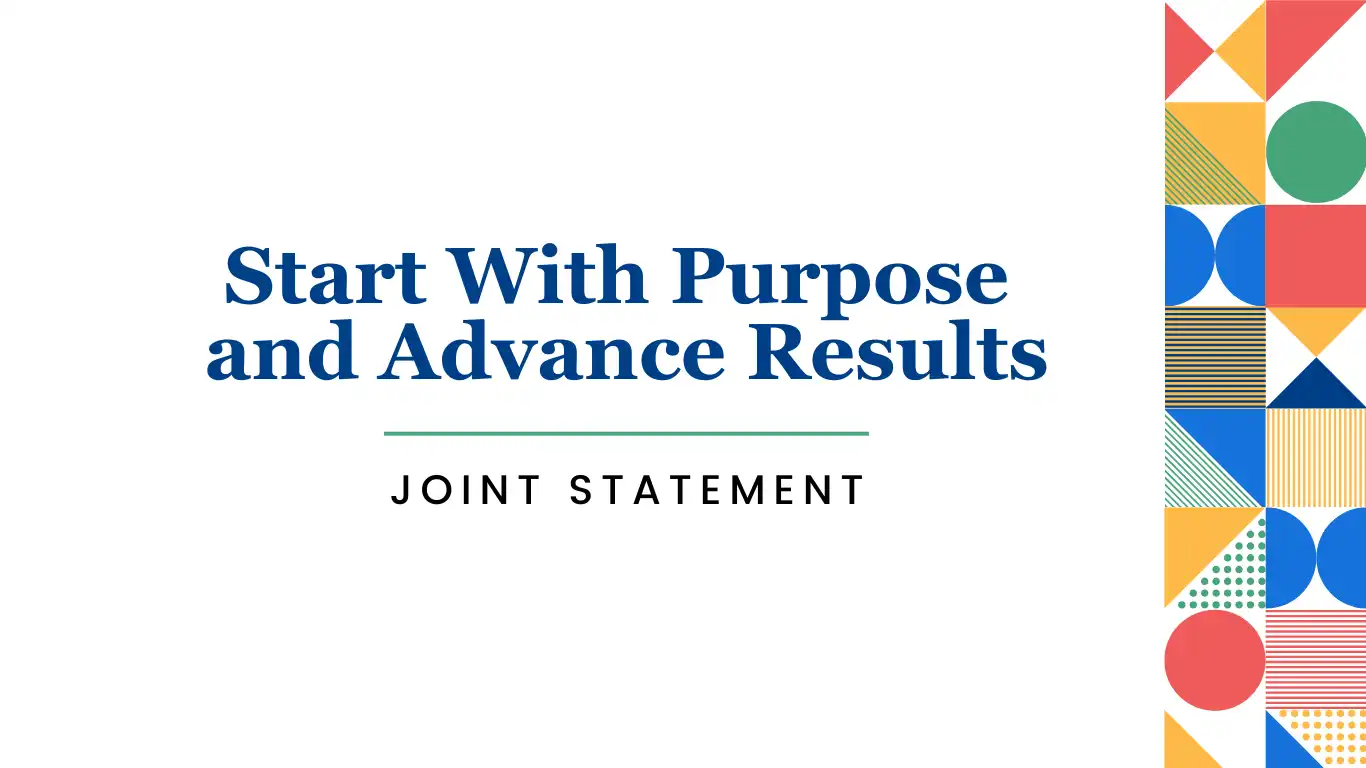Last week’s release of the report by the Independent Panel for Pandemic Preparedness and Response’s (Independent Panel): COVID-19: Make it the Last Pandemic comes at arguably one of the most complex and challenging times in the global COVID-19 crisis.
Just as many states and businesses across the U.S. quickly lifted mask-wearing restrictions in response to new guidance from the U.S. Centers for Disease Control and Prevention, and countries across the world lifted restrictions, the world continues to see record numbers of new COVID-19 cases. World Health Organization (WHO) Director-General Dr. Tedros warned of the grave emergency in India and the worsening situation in countries such as Nepal, Sri Lanka, Vietnam, Cambodia, Thailand and Egypt that are dealing with spikes in cases and hospitalizations. Nearly 18 months since the outbreak of the COVID-19 virus was first reported, the global inequities in the response are sharper than ever. Only 0.3% of COVID-19 vaccine supply is going to low-income countries, and the world still lacks the necessary life-saving supplies and systems necessary to contain, let alone end, this pandemic.
It is amidst this backdrop that the Independent Panel is sounding the alarm for world leaders to take urgent action, both to ratchet up the global COVID-19 response as well as to make the significant changes to the international system necessary to bolster global preparedness for future pandemic threats. While we think the Independent’s Panel’s recommendations could have been much more ambitious in certain areas, if enacted they would constitute a major step change in how pandemics are treated by governments as an existential global security threat. The Independent Panel calls COVID-19 a “Chernobyl moment” for pandemic preparedness: the catastrophe that should trigger the kinds of international policies, systemic reforms, safeguards, and accountability for addressing pandemics that Chernobyl triggered for nuclear threats.
IF ENACTED. This is the key point. We have seen this story play out before — the cycle of panic and neglect characterized by a deadly disease outbreak, followed by urgent crisis response, systemic review, reports, and recommendations that leaders fail to implement. Over the next 100 days, in advance of the next UN General Assembly, we must begin to break this deadly cycle once and for all.
________________________
“Everything that has been accomplished by this commission is really a prelude. It’s the overture to the opera that we have not yet heard. We don’t really know yet how well these tasks will be taken up and these recommendations acted upon … It’s been shown over time that it’s not enough to lay out what the world should do. It’s going to require continued promotion, advocacy, and monitoring.”
— Harvey Fineberg, President, Gordon and Betty Moore Foundation
________________________
In April, Pandemic Action Network’s 100+ partners developed our 2021 Action Agenda to urge world leaders to take action to bolster the global COVID-19 response, hasten an end to this global crisis, and lay the groundwork for a more pandemic-proof world. Last week, we gathered global experts for an examination of the Independent Panel’s findings (view here, passcode: &DuB+G9^) and the verdict was clear: We must lay out the path and the timeline and take immediate action to carry these recommendations forward. Now, on the heels of the Independent Panel’s Report, we call on world leaders to take the following actions within the next 100 days to help end this pandemic and prevent the next.
1. Agree on the plan and secure the resources necessary for the global COVID-19 response and reach at least 70 percent vaccine coverage as quickly as possible.
While global action lags and virus variants continue to spread, the devastating human, social, and economic consequences of the pandemic will only continue to worsen and prolong our ability to reach global herd immunity and bring an end to the acute crisis.
The Independent Panel report urges countries that have bought more vaccines than they need to begin sharing doses immediately through the COVAX facility — with the goal of 1 billion doses by September and 2 billion by mid-2022. We believe we must go further and faster. We urge world leaders to apply the same ingenuity, political will, and public-private partnerships that brought us these novel vaccines in record time to speed up both the global production and the delivery of vaccines — and reach the goal of 2 billion vaccines shared through COVAX to people in low- and middle-income countries (LMICs) before the end of this calendar year.
World leaders also should adopt, rigorously cost, and fund a global vaccine roadmap to reach at least 70% vaccine coverage around the world as soon as possible. Recent cost estimates vary widely, from at least $60 billion to an estimate of $190 billion for the costs of delivery to the last mile — and the real costs are likely to be much higher. Given the lack of previous investments in preparedness, the havoc the pandemic has wreaked on already under-resourced health systems, and the continuing global shortages of oxygen, personal protective equipment, diagnostics, therapeutics and other life-saving supplies, a full costing of the global COVID-19 response is likely to be much higher. But even a doubling the higher-end estimates would still be a fraction of what governments have spent so far on response and stimulus measures or the projected $22 trillion in losses to the global economy from the pandemic over the next five years.
________________________
“The world must step up in its ambition and its collective efforts to solve the crisis as soon as possible. It’s unfortunate that 18 months after the start of this pandemic the Panel still felt the need to call for the global roadmap to end this pandemic.”
— Muhammad Pate, Global Director, Health, Nutrition, and Population, World Bank,
and Director, Global Financing Facility
________________________
2. Build and commit the resources to launch a new and enduring multilateral financing mechanism for pandemic preparedness.
The Independent Panel’s recommendation to create an International Pandemic Financing Facility embraces earlier calls by the Pandemic Action Network and others for a new multilateral funding mechanism to bolster pandemic preparedness. The Panel’s proposed facility would mobilize an additional US$5-10 billion annually over the next 10-15 years for pandemic preparedness and be able to disburse rapid-surge financing for response of $50-100 billion at short notice to help stop an emerging pandemic threat. Based on the experience of this pandemic, these funding targets, especially for preparedness, will likely need to increase.
World leaders should commit to launch and fund a new financing mechanism that is fit-for-purpose, based on more rigorous cost estimates of what is required to get the world better prepared, and ensure that its resources are not only additional to current global health spending but also that the preparedness funds are protected in the event of a crisis. This should not just be about business as usual or mobilizing more money for all things health: A new facility should be catalytic; incentivize countries to prioritize development, budgeting, and implementation of their national health security action plans; and hold them to account. Launching this mechanism should not wait until this pandemic is over.
________________________
“We must, we absolutely must use this window to focus on tangible actions this year. To build the tools for the future we need, for financing, surge capacity, manufacturing triggers, for oversight. We don’t want to miss this opportunity.”
— Beth Cameron, Senior Director for Global Health Security and Biodefense, National Security Council, White House
________________________
3. Elevate pandemic preparedness and response to the highest levels of political leadership, including adopting a global implementation plan and establishing a high-level oversight body with the mandate to prepare for and respond to pandemic threats.
To solve for the egregious lack of decisive leadership and clear accountability for the global COVID-19 response and for pandemic preparedness, the Independent Panel calls for world leaders to take several actions this year: establish a Global Health Threats Council made up of heads of state and government, adopt a political declaration at a Special Session of the United National General Assembly, and adopt a Pandemic Framework Convention. Taken together, these steps would ensure this agenda gets the high-level and sustained political attention and support it demands, and which has been lacking for far too long. A Global Threats Council model is not only something the world needs to prevent and prepare for future pandemics, but a model that we need now to coordinate and action key priorities to end this pandemic. World leaders should embark on those negotiations now and a high-level oversight body should be set up to steer these efforts forward. Simultaneously, world leaders should forge a robust political declaration for adoption at UNGA that will be more than words and not just a one-off event. The Special Session should set in motion a global plan to implement the full range of the Panel’s recommendations to get the world better prepared before the next pandemic strikes, and every head of state or government should lay out what they will do in support.
________________________
“One way to get countries to do more is to have them held accountable by their citizens … Civil society needs to be brought into the decision making processes [for pandemic preparedness], to hold governments accountable for action.”
— Rosemarie Muganda, Regional Advocacy Director for Africa, PATH
________________________
4. Create meaningful and sustained mechanisms to engage civil society as critical partners for driving system change and accountability.
The Independent Panel report underscores that COVID-19 is so much more than a public health crisis; it’s a profound socio-economic crisis, whose impacts will be felt by the poorest and most vulnerable for years, perhaps decades, to come. The longer the pandemic persists, the more the inequities in our systems are amplified and deepened.
As countries, companies, and communities emerge from the acute crisis of the pandemic, they have a responsibility to step up and help close these global gaps, and ensure that this does not happen again. Leaders, at every level — national, regional, global — should take steps to ensure that civil society organizations have a seat at the table as they build and adapt their response and preparedness plans, to ensure those plans reflect the needs of their communities, and to empower citizens to hold their political leaders to account for enacting the fundamental changes needed for a more resilient world.
Pandemic Action Network is laser-focused to seize this window to take action and we are relentless in our advocacy because we believe that we can and must pandemic-proof our present and our future. Together, our 100+ partners urge world leaders — at the G7, G20 and other global summits — to recognize that right now, they have one job: end this pandemic and ensure we are prepared for the next.



